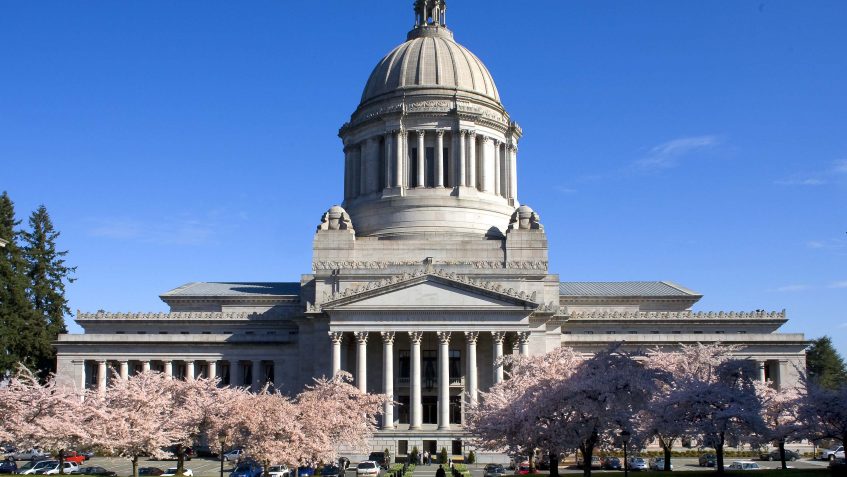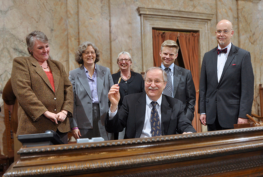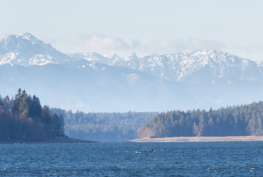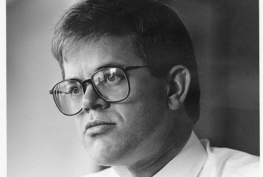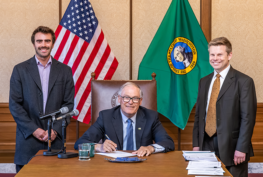Dear friends and neighbors:
Before the Legislature finished this year’s 60-day session last week, we passed supplemental operating, transportation, and capital budgets to fund everything from public schools to roads. These supplemental budgets are generally minor changes to the two-year budgets that we enact in the odd-numbered years. For my final email legislative update of 2018, I would like to share a few highlights of important community investments for the state and for our district. You can find a wealth of other information about the budgets by clicking here.
Operating budget
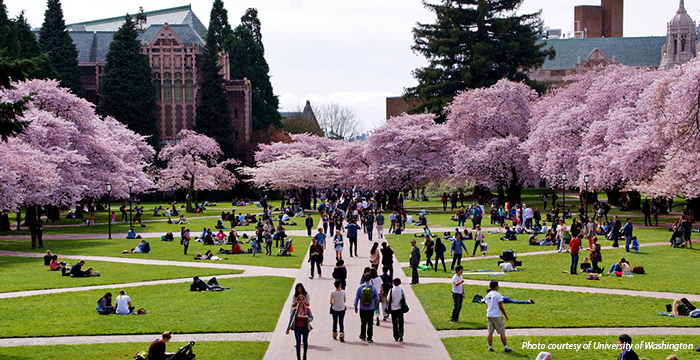
The $44.7 billion operating budget for 2017-19 primarily funds public schools ($22.7 billion), health and human services ($13.9 billion), and higher education ($3.9 billion).
Our biggest investment in the 2018 supplemental operating budget was nearly $1 billion of additional funding for public schools. We hope and expect that this money – including roughly $48 million in additional funding for Seattle Public Schools – will finally resolve the McCleary litigation and bring the state into compliance with its constitutional obligation to provide ample funding for public schools. We also passed legislation (E2SSB 6362) to begin to correct some of the defects in last year’s education funding bill, ESHB 2242. These include changing the formula for allocating special education money to school districts. Although this will increase state spending for special education by $97 million over the next four years, we know that we have a lot more work to do in the next biennial budget.
The supplemental budget also sets us on a path to fund the State Need Grant fully over the next four years. This is the state’s principal financial aid program for higher education, which helps more than 60,000 students attend college each year. Roughly 22,000 students who qualify have been stuck on a waiting list that will now be phased out. Making this investment will help expand the opportunity for higher education to everyone in our state.
A third major investment is nearly $300 million over the next four years for mental and behavioral health care to fulfill the state’s legal and moral obligations at our state hospitals and in our communities. This funding should help to address one of the major drivers of our current homelessness crisis: untreated substance abuse and mental health issues.
The supplemental budget includes hundreds of other smaller investments, from increased funding for public defense and civil legal aid to school breakfasts and temporary aid to needy families.
Finally, I want to highlight the great work that Speaker Chopp and Representative Macri have led on affordable housing issues. ESHB 1570, introduced by Representative Macri, will stabilize the state’s primary revenue source for responding to homelessness by increasing to $62 and making permanent a surcharge on certain documents filed at the county level. This will raise $26 million a year for services to help people who are homeless.
Transportation

The $9.5 billion transportation budget for 2017-19 funds construction and maintenance of roads and bridges around the state, as well as the Washington State Patrol and the ferry system. Our district is home to two of the largest current projects in the budget: the SR 99 tunnel under downtown and South Lake Union and the replacement of the SR 520 floating bridge.
Although there was very little money for new investments in the 2018 supplemental transportation budget, I worked to secure three items of note for our district.
- First, extensions of noise walls along I-5 in the Eastlake neighborhood will be completed four years earlier. Construction will begin in the next biennium and should be completed by 2023.
- Second, the supplemental budget includes $500,000 for grants to residents most affected by construction noise on SR 520 in Montlake. This could help with window retrofits, insulation, or other measures to make construction over the next few years more bearable.
- Finally, the supplemental budget includes language directing the Department of Transportation to do everything that it can to preserve the Montlake Market. The market is a both a grocery store and an important neighborhood asset. The department will also be required to engage in regular outreach and dialogue with the community on this issue.
Capital budget

The $4.6 billion capital budget for 2017-19 was not enacted until January of this year because of a standoff in the 2017 session over rural water wells. The capital budget funds construction, including assistance for local districts with school construction and building and renovation of facilities at the University of Washington and other higher education institutions. The biennial budget included funding for the renovation and expansion of the Country Doctor Community Health Center on Capitol Hill and completion of the new Burke Museum project on the University of Washington campus. It also included $10 million to pay for construction of a new wing at West Woodland Elementary School to relieve overcrowding and eliminate portables.
For many years, Seattle legislators have worked together to secure funding for Seattle Public Schools in the capital budget. This year’s supplemental capital budget will add $7.9 million to build additional classroom space at Frantz Coe Elementary School on Queen Anne.
The supplemental budget also provides an additional $1 million to help complete the renovation of our historic Town Hall on First Hill.
Stay in touch
Thank you for taking the time to read this update. Although the Legislature has adjourned for the year and I have returned to my other job, I welcome your questions or concerns. It is a privilege to serve you.
Best wishes,
Jamie
Senator Jamie Pedersen
43rd Legislative District
Jamie.Pedersen@leg.wa.gov
(360) 786-7628
